We are pleased to share the last article in our Taylor Swift and Philosophy blog series. This week’s article was written by Georgie Mills, co-editor of ‘Taylor Swift and Philosophy: Essays from the Tortured Philosophers Department’ and panellist at the upcoming ‘Taylor Swift and philosophy’ public lecture at LSE.
As ever, when Taylor Swift releases a song or an album, the world is all achatter in speculation. Who is this song about? What must have happened between them? Peter Pan’s name is already over a century old. Who knows, Taylor Swift’s name might well be as long lasting, as might Matty Healy’s or Joe Alwyn’s, but chances are, a hundred years from now, their relationships will be long forgotten. I cannot say if Taylor Swift’s album The Tortured Poets Department will still be listened to in a hundred years, but if it is, when listeners reach the song “Peter”, my guess is that they’ll think of J.M. Barrie’s Peter Pan, oblivious to all the headlines surrounding the composer’s love life.
Taylor Swift’s “Peter”, on first listen seems to be a twist on the story of “Peter Pan and Wendy” from Wendy’s point of view. The song captures the profound sorrow in letting go of a magical dream. Taylor’s Wendy reminisces about Peter with childlike wonder, expressing that she “didn’t wanna come down” and repeating the half-mourning, half-accusatory line “you said you were gonna grow up, then you were gonna come find me” over and over with bitter disappointment.
In writing this song, Taylor has projected herself into a decades-old story and added a brushstroke on the canvas of this widely beloved character. She has related it to her own life, we presume. And this is exactly what she consistently invites us, her audience, to do with her songs.
Although Peter Pan is the creation of a novelist, J.M. Barrie, the numerous tellings and retellings of his story has transformed him into something of a folk character. Barrie is long dead in a literal sense, but he also seems dead in the sense that Roland Barthes imagined when he first wrote his essay “La Mort de l’Auteur”, the death of the author. So many generations have read their own meaning into stories of Peter, his character has taken on a myriad of meanings. Peter Pan has not belonged exclusively to Barrie for decades. He has belonged to children all over the world who dream of flying away and fighting pirates, he has belonged to adults reminiscing about the magic of childhood, and he has belonged to scholars who remind their readers of the cruelty and caprice that Peter displays, as they try to decipher Barrie’s intentions. Peter belongs to Bobby Driscoll, Robin Williams, Taylor Swift, and now, to all her listeners.
Taylor has often said that she wants her listeners to relate her songs to their own lives, rather than fixate on who the song is “about”. This is partially to protect her own privacy, but it also seems like Taylor Swift has leaned into the “death of the author” phenomenon. The final lines of The Tortured Poets Department are “now and then I re-read the manuscript, but the story isn’t mine anymore”, a treatise on the fans’ relationship with her work. She creates the work and is proud of her creation, but also releases it into the hands of her listeners to make what they will of it. Fans may cry along listening to “All Too Well” because of the moving music and lyrics, because of empathy for the singer, or because they are remembering a terrible heartbreak of their own.
We might see this phenomenon as an inevitable part of the nature of art. There is a cathartic value in listening to music and associating the emotions it evokes with our own lives. Taylor Swift goes one step further than this. I believe that Taylor positions herself as the guardian of myth and folk tales, including those that might have been inspired by her own experience.
In the Instagram post she wrote to announce her 2020 album “folklore”, Taylor introduces the album as the result of her imagination run wild. She writes “I’ve told these stories to the best of my ability with all the love, wonder, and whimsy they deserve. Now its up to you to pass them down.” In doing this, Taylor is deliberately positioning herself as the author of a collective tale. She is giving herself the same role as Homer or Scheherazade, the legendary author of a stories retold and metamorphosised though oral storytelling.
The Tortured Poets Department is rich with examples of the kind of mythic motifs that show Taylor taking on the role of a temporary guardian of a story, character, or folk creature. Cassandra is a well-known character from ancient, mostly Greek, mythology. She was a Trojan princess, kidnapped by the Greek war lords when Troy fell. She is notable for her powers, a blessing and subsequent curse from Apollo. Cassandra could see into the future, but she would never be believed if she tried to warn anyone about what was coming. In this way, Cassandra serves as a tragic figure in the stories she appears in, often doomed to witness preventable calamity that she could have avoided if only she had been listened to. Her powers give her immense potential as a dramatic device, as she can inform the audience, the only people who believe her, of what’s coming while the characters around her carry on obliviously.
Taylor’s Cassandra does not serve as a plot device, but as an emotional one, to draw out the listeners empathy, as the song “Cassandra” captures the intense pain of being right and not being listened to, even being punished for it. We could speculate about what actions in Taylor’s life make her relate to Cassandra, but we, the listeners, might also find the song impactful because we know first hand the pain of telling the truth to people who don’t believe us, or who react by shooting the messenger.
The Tortured Poets Department is littered with mythic motifs like this, where Taylor adds her own twist on a well-known tale. She brings her listeners to resonate with the emotional heart of the motif she references rather than providing a faithful narration of past stories.
Prophecies in Greek mythology often serve as plot devices for characters to walk decisively into their own doom, at times by trying to avoid it. Taylor Swifts “the Prophecy” captures the emotional reality of feeling doomed to repeat the same patterns, to never find a lasting partnership or an end to loneliness. The black dog is a stock creature in folklore, every country in England seems to have their own variation, plus there are variants from Wales, the Channel Islands, and the Isle of Man. Black dog myths can vary, but the overall trend is that they are an emblem of doom or imminent death. Taylor takes this motif and brings it into the modern era, with “The Black Dog” bar serving as the final death knell in a failed relationship.
Taylor has done this time and time again, from evoking Romeo and Juliet to give a happier ending to the forbidden romance in her song “Love Story”, to using “tolerate it” to force the audience to live the pain of the nameless Mrs de Winter from Daphne Du Maurier’s “Rebecca”. Mrs de Winter has had creative input from many talented actresses and screen writers, but Swift uses irregular time signature, uneven musical phrasing, and heartbreaking lyrics to take her turn at making us feel for Mrs de Winter.
What “the Manuscript” teaches fans is that Taylor’s stories belong to them: with each record, new stories are put into the listeners’ hands. In reading their own lives into this song, fans may be inspired to turn their own stories of love, loss, friendship, and heartbreak into art or music—to allow their own experience to become the latest echo of a folk tale told generation after generation.
By Georgie Mills
Georgie Mills is a philosopher and songwriter studying for a PhD at Tilburg University. Her philosophical work explores topics such as personality, emotion, disability, fandom, and punk rock.
On Monday 28 October, LSE Philosophy is hosting the public lecture ‘Taylor Swift and philosophy’ with Eline Kuipers (Ruhr University Bochum), King-Ho Leung (King’s College London), Georgie Mills (Tilburg University), Catherine M Robb (Tilburg University) and Jonathan Birch (LSE Philosophy). The event is free and open to all. You can attend in-person or online. More information about the event.


























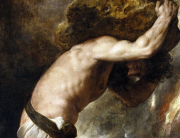















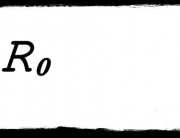

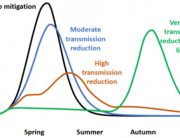

















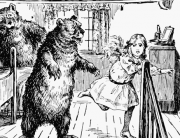

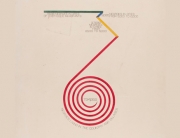






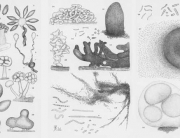





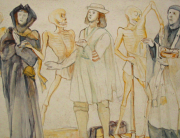

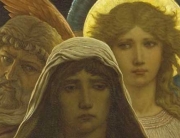



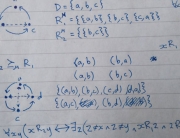





















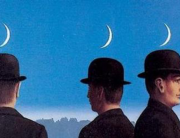



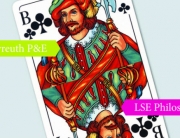














Connect with us
Facebook
Twitter
Youtube
Flickr